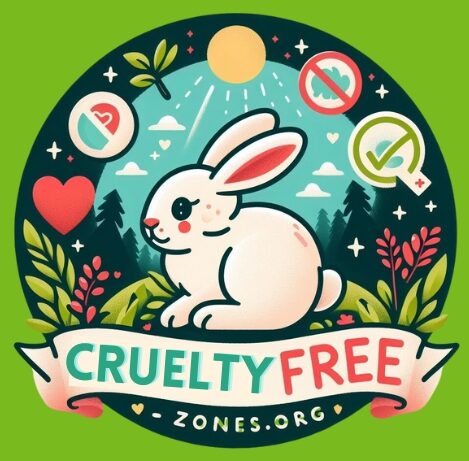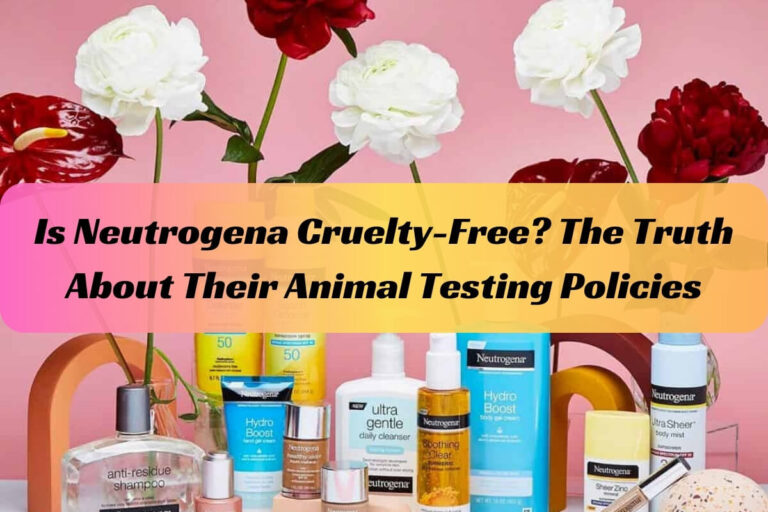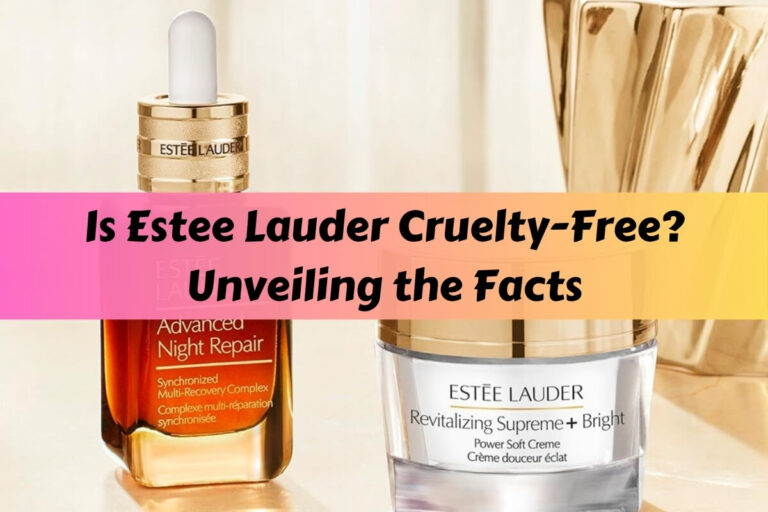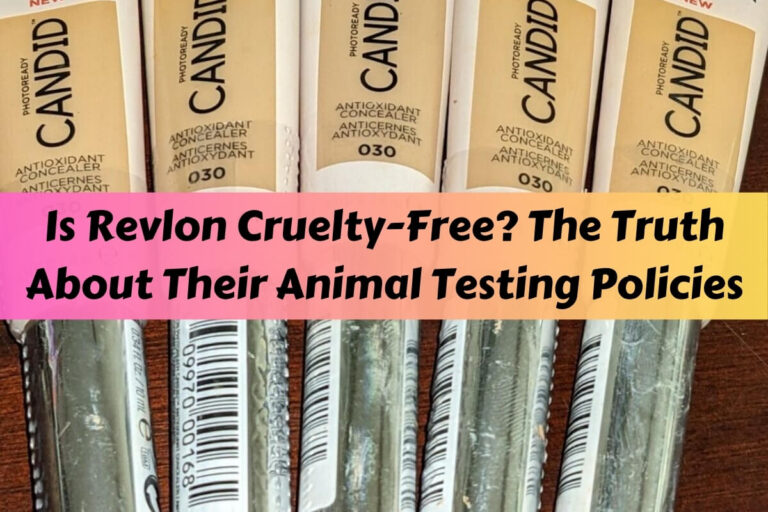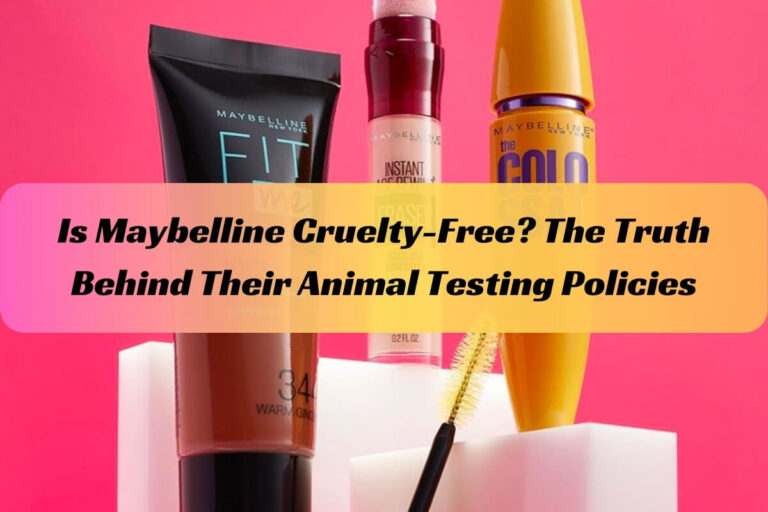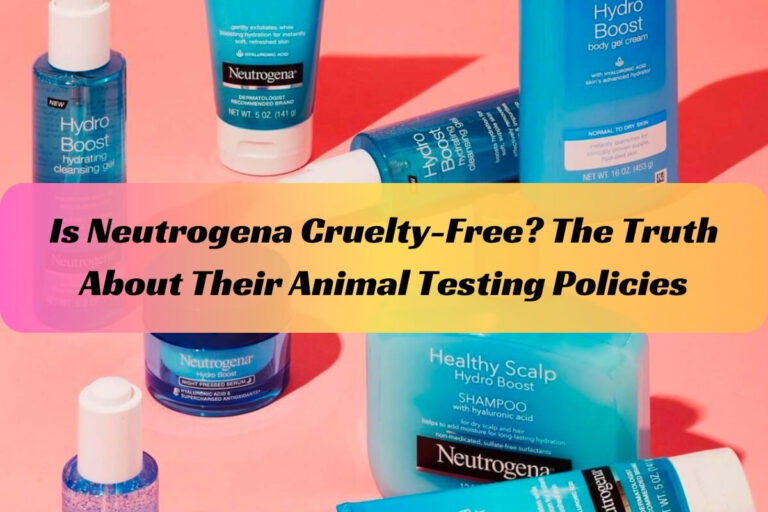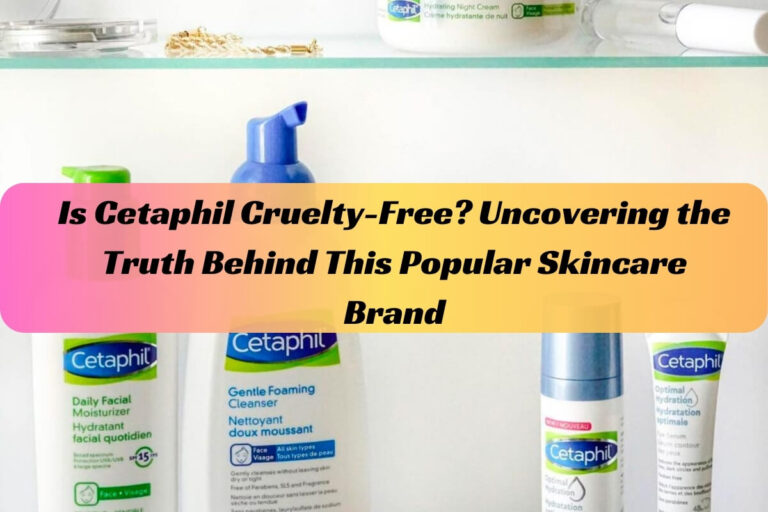Is La Roche-Posay Cruelty-Free? Uncovering Animal Testing Practices
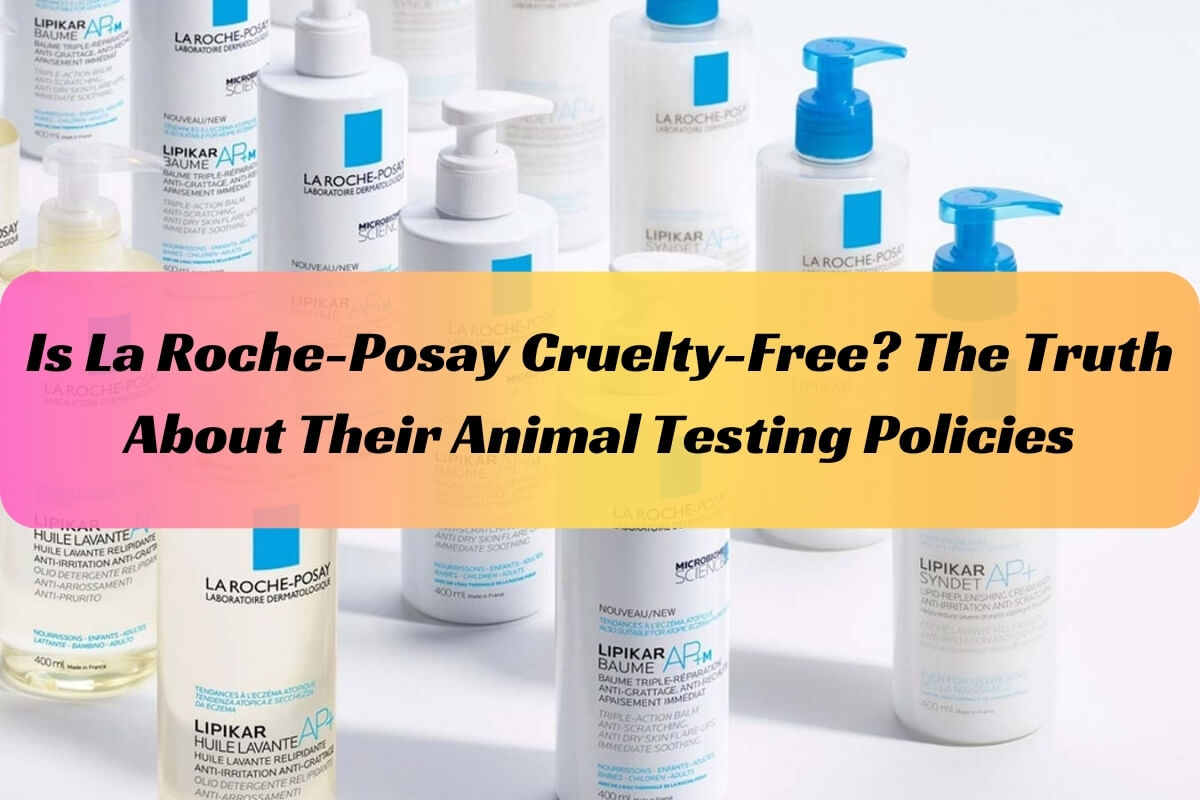
Many people care about whether La Roche-Posay is cruelty-free. This popular skincare brand has lots of followers, but people disagree with their animal testing policies. We’ll examine La Roche-Posay’s claims and practices around being cruelty-free and vegan. This information can help you choose if their products align with your values.
Here’s what we’ll cover:
- What does “cruelty-free” really mean, and how is it different from being vegan?
- The truth about La Roche-Posay’s animal testing policies and practices.
- How La Roche-Posay’s parent company, L’Oréal, factors into the equation.
- Insights into China’s animal testing laws and their impact on brands like La Roche-Posay.
- Non-vegan ingredients in La Roche-Posay’s products and vegan alternatives.
- Guidance on identifying cruelty-free and vegan brands through certifications and policies.
- Cruelty-free and vegan alternatives to La Roche-Posay for your skincare and makeup needs.
So, let’s dive in and uncover the truth about whether La Roche-Posay is truly cruelty-free.
What Does Cruelty-Free Mean?
Before we explore La Roche-Posay’s policies, it’s essential to understand what “cruelty-free” really means. A cruelty-free brand doesn’t test its products or ingredients on animals at any stage of development. This includes not testing on animals themselves, as well as ensuring their suppliers and third parties refrain from animal testing.
The Difference Between Cruelty-Free and Vegan
While the terms “cruelty-free” and “vegan” are often used interchangeably, they have distinct meanings. Cruelty-free refers to the absence of animal testing, while vegan means that a product doesn’t contain any animal-derived ingredients or by-products.
A product can be cruelty-free but not vegan if it contains animal-derived ingredients like beeswax, honey, or lanolin. Conversely, a product can be vegan but not cruelty-free if the brand tests its vegan ingredients on animals.
Why Do Companies Test on Animals?
Many cosmetic companies justify animal testing as a way to ensure the safety of their products for human use. However, with the availability of advanced non-animal testing methods, such as in-vitro tests, computer models, and human clinical studies, this argument is becoming increasingly obsolete.
La Roche-Posay’s Animal Testing Policy
Now, let’s dive into La Roche-Posay’s official stance on animal testing.
Do They Test on Animals Directly?
According to its website, La Roche-Posay claims not to test any of its products or ingredients on animals directly. However, they leave a loophole by stating, “The only possible exception is if regulatory authorities required it for safety or regulatory purposes.”
Do Their Suppliers Test on Animals?
La Roche-Posay doesn’t explicitly state whether their suppliers test on animals or not. This lack of transparency is a red flag, as many brands outsource animal testing to third-party suppliers.
Do Third Parties Test on Their Behalf?
La Roche-Posay doesn’t test on animals directly, but they may pay others to do so where required by law, such as in mainland China.
La Roche-Posay and Animal Testing in China
China’s Animal Testing Laws
In mainland China, animal testing is still legally required for most cosmetic products before they can be sold in physical stores. While some brands have found ways to bypass these laws by selling online or adhering to strict regulations, it’s an uncommon practice.
Is La Roche-Posay Sold in China?
Multiple sources confirm that La Roche-Posay is available for sale in mainland China, where animal testing is mandated. This means that their products were likely tested on animals to comply with Chinese regulations.
La Roche-Posay’s Parent Company: L’Oréal
La Roche-Posay is owned by L’Oréal, a global cosmetics giant that isn’t considered cruelty-free.
L’Oréal’s Animal Testing Policy
L’Oréal doesn’t test on animals themselves, but they pay others to do so when required by law. This means L’Oréal still engages in animal testing, indirectly.
The Debate Around Buying from Cruelty-Free Brands Owned by Non-Cruelty-Free Parents
There’s an ongoing debate within the cruelty-free community about whether it’s ethical to support cruelty-free brands owned by non-cruelty-free parent companies like L’Oréal. Some argue that it’s better to boycott these brands altogether, while others believe that supporting the cruelty-free branches can drive change within the larger corporation.
It’s a personal decision that each conscious consumer must make based on their values and ethics.
Is La Roche-Posay Vegan?
Now that we’ve explored La Roche-Posay’s cruelty-free status, let’s take a look at whether their products are vegan.
Non-vegan Ingredients in Their Products
Unfortunately, La Roche-Posay isn’t entirely vegan. Their products contain animal-derived ingredients like beeswax, honey, and lanolin, making them unsuitable for those following a strict vegan lifestyle.
Vegan Alternatives to Animal-Derived Ingredients
For those seeking vegan alternatives, there are plant-based substitutes for common animal-derived ingredients. For example, beeswax can be replaced with candelilla wax, honey with maple syrup, and lanolin with plant-based oils like shea butter or coconut oil.
Cruelty-Free and Vegan Certifications
One way to quickly identify cruelty-free and vegan brands is to look for third-party certifications.
Leaping Bunny and PETA Certifications
Organizations like Leaping Bunny and PETA have strict criteria for certifying brands as cruelty-free. These certifications ensure that a brand doesn’t test on animals at any stage of production, including their suppliers and third parties.
Similarly, the Vegan Society offers a Vegan Trademark for products that don’t contain any animal-derived ingredients or byproducts.
Is La Roche-Posay Certified?
As of now, La Roche-Posay isn’t certified as cruelty-free or vegan by any major organization. This lack of certification, combined with their animal testing policies and non-vegan ingredients, raises concerns for conscious consumers.
Cruelty-Free and Vegan Alternatives to La Roche-Posay
If you’re looking for cruelty-free and vegan alternatives to La Roche-Posay, there are plenty of options available.
Cruelty-Free Skincare Brands
Some great cruelty-free skincare brands to consider include Skinfix, Derma E, and Fenty Skin. These brands have strict policies against animal testing and offer a wide range of products for various skin types and concerns.
Vegan Makeup Brands
For vegan makeup lovers, brands like Kosas, MERIT, and Rose Inc. offer high-quality, cruelty-free, and vegan cosmetics. From foundation to lipstick, these brands cater to diverse makeup needs without compromising on ethics.
How to Identify Cruelty-Free and Vegan Brands
While certifications can be helpful, there are other ways to determine if a brand is truly cruelty-free and vegan.
Checking Brand Websites and Policies
Start by checking the brand’s website for its animal testing policies and ingredient lists. Look for clear statements about not testing on animals, as well as transparency regarding their suppliers and third-party practices.
Looking for Third-Party Certifications
In addition to checking the brand’s website, look for third-party certifications from organizations like Leaping Bunny, PETA, or the Vegan Society. These certifications provide an extra layer of assurance that the brand meets strict cruelty-free and vegan standards.
Considering Parent Companies
Don’t forget to research the brand’s parent company, if applicable. Even if a brand claims to be cruelty-free, its parent company’s policies and practices can impact its cruelty-free status. Many large cosmetics corporations still engage in animal testing, either directly or through third parties.
If a cruelty-free brand is owned by a parent company that tests on animals, it’s up to you as a conscious consumer to decide whether you want to support that brand or not. Some argue that it’s better to boycott these brands entirely, while others believe that supporting the cruelty-free branches can drive positive change within the larger corporation.
Ultimately, there’s no one-size-fits-all answer, and it’s a personal decision based on your ethical standards.
Conclusion
So, is La Roche-Posay cruelty-free? Based on the information available, the answer is no. While the brand claims not to test on animals directly, they admit to paying third parties to conduct animal testing when required by law, such as in mainland China.
La Roche-Posay’s parent company, L’Oréal, engages in animal testing through third parties, and La Roche-Posay’s products contain non-vegan ingredients like beeswax, honey, and lanolin, making them unsuitable for vegans.
The decision to support or boycott La Roche-Posay lies with you, the conscious consumer. If you’re seeking cruelty-free and vegan alternatives, consider brands like Skinfix, Derma E, Kosas, and MERIT that prioritize ethical and sustainable practices.
Remember, by voting with your dollars and supporting brands that align with your values, you can drive positive change in the beauty industry and encourage more companies to embrace cruelty-free and vegan practices.
